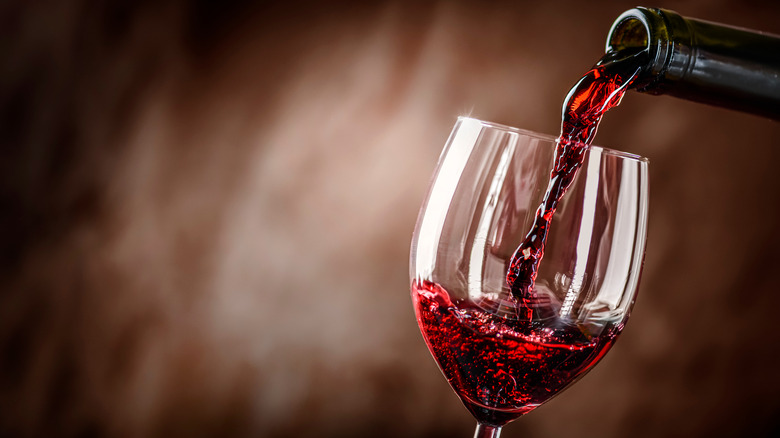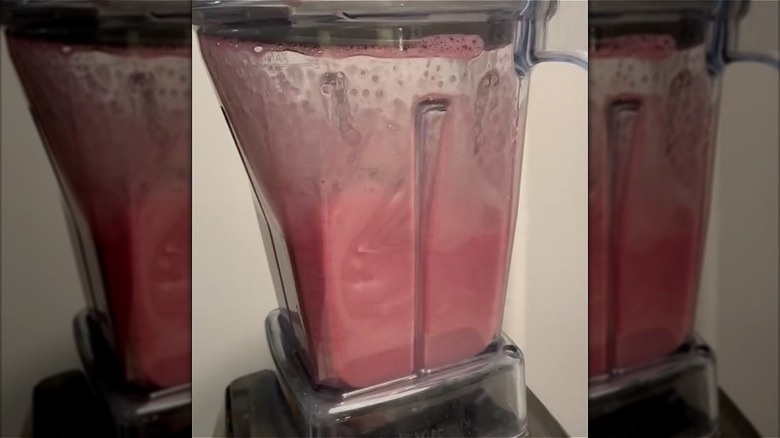A Kitchen Staple Could Make Your Wine Taste Better In Just A Blitz
There are a lot of different methods people use to make the most out of their wine, which makes sense, especially when even Aldi wine can come with a sky-high price these days. One of the simplest ways people try to improve their wine is simply by decanting it. But if your idea of decanting wine involves using a simple glass container and letting the air do its thing, Connor Roy on "Succession" would be shook. "You don't hyper decant? You're just doing regular decanting?" he might ask (via YouTube). That's because Roy favors the blender when he's looking to improve a bottle fast. "You can age your wine five years in ten seconds," according to Roy, and it turns out he might not be alone in thinking so.
The term hyper decanting refers to adding wine to a blender and whipping it up until foamy. After the foam dies down, the wine is ready to go. Apparently, the process mutes the tannins while adding air to the wine. That's similar to traditional decanting, which vineyard owner Marcy Roth explains "opens up the wine and aerates it, allowing more of the flavor and aromas to come forth and to show their most finessed polish side" (via The Independent). But before your start giving every bottle of wine you come across the smoothie treatment, there are a few things to keep in mind.
Dos and don'ts of hyper decanting
Hyper decanting may at first sound like something that would make any bottle of wine better, but VinePair cautions against hyper decanting high-end wines. In a test by one wine expert, it was found that hyper decanting a bottle of 100-point wine removed the nuance, leaving behind "the sad, sad fruitless ghost of a once-great bottle of wine."
So what are the best wines to try hyper decanting? Australian sommelier Leanne Altmann suggests using "youthful, juicy, fruit-forward wines that you want to be smashable and easy to drink," like Cabernet and Shiraz (via Melbourne Food and Wine Festival). And Wine and Sommelier urges folks who try hyper decanting to keep a close eye on the timer. After 15 seconds in the blender, they found that the wine was very similar to one that had been decanted the conventional way, and after 30 seconds, "the wine seemed less structured, more floral, and less tanic." But after 45 seconds, it was ruined. You can try hyper decanting inexpensive bottles of fruity, young wine, but don't blend for more than 30 seconds, and save your prized bottles for the traditional decanting method.

